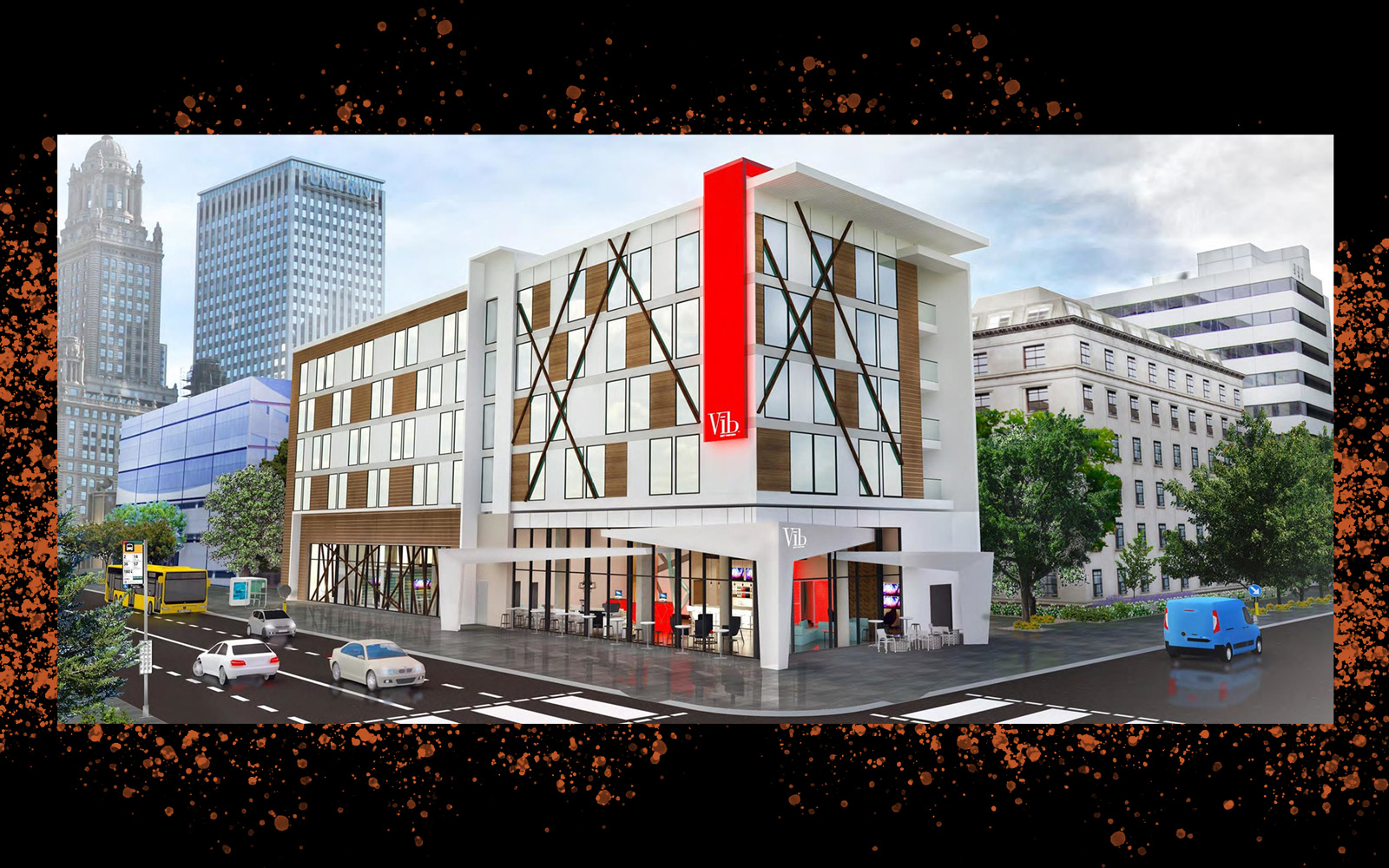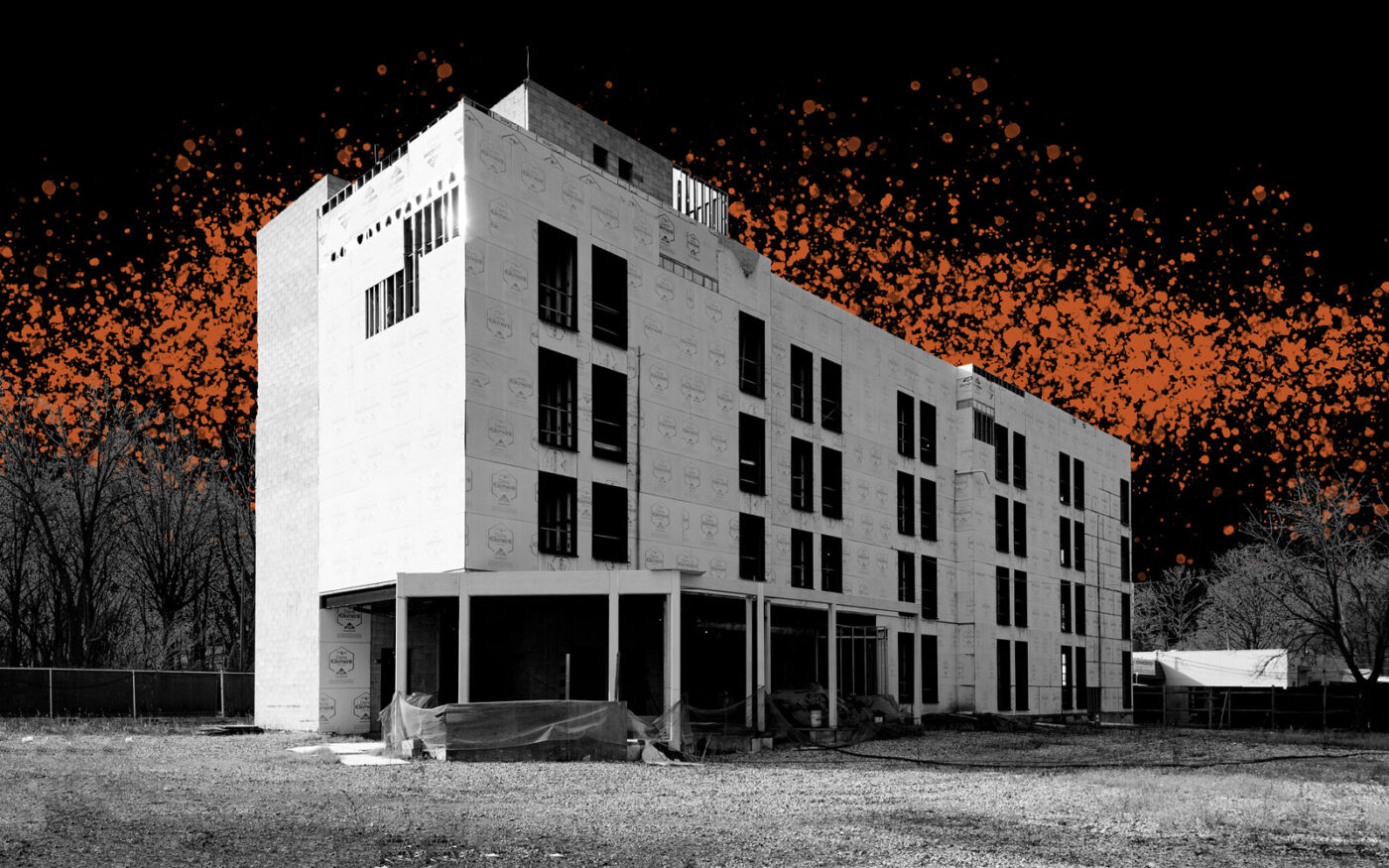Developers whose Staten Island hotel project went bankrupt are accusing their lender of a loan-to-own scheme. Unless the courts intervene, they could lose their personal residences.
The developers’ LLC, Richmond Hospitality, is in Chapter 11, after lender Shaughnessy Capital stopped funding the loan for the 80-key development and ginned up a default to “reap millions” in penalty interest and other fees, according to a lawsuit filed last week.
The disastrous effort to build the South Bridge Best Western dates back 10 years.
Richmond Hospitality inked a 99-year lease in 2014 for a lot at 110 South Bridge Street with plans to build a Best Western Vib Hotel. The industrial area showed promise, given its proximity to the Outerbridge Crossing, which links Staten Island to New Jersey.

The hotel was supposed to have a two-story waterfall in the lobby and total 25,341 square feet. Sal Faraone, who had helped open the Brooklyn Motor Inn in Red Hook in 2003, was among those behind it, according to a 2016 article by NY Yimby. Faraone hoped to repeat the recipe of developing a hotel in an industrial area soon to gentrify.
Shaughnessy Capital advanced the project $4 million in 2017, by which time the hotel’s facade was up. Bastian Rose, the president of Shaughnessy, required monthly payments to be made to him personally, the lawsuit stated. Documents filed with the lawsuit list payments to Rose of $1.4 million from 2017 to 2020.
Problems began when Richmond discovered its contractor misappropriating funds, resulting in the investors having to reach into their own pockets to make up for $1.1 million in unpaid work, filings show. Still, they were able to refinance with Shaughnessy in late 2018, scoring $9 million.
But the investors had to put up $6 million in additional collateral using their personal homes to secure the line of credit. The refinancing put Shaughnessy in an overcollateralized position, the lawsuit explained, implying that the lender stood to gain more by foreclosing than by funding the loan.
“Shaughnessy intended it to fail and never had the financial ability to fund the entire project,” the suit alleges.
Another decision then came back to haunt the investors: Their lender was put in a position to engineer a default.
As the project progressed, the lawsuit said, Shaughnessy assumed the role of dispersing funds to contractors. Richmond hired Precision Builders Group in November 2018 to complete the project, but, according to the suit, Shaughnessy declined to pay Precision’s third and fourth requisitions, claiming work was unfinished.
Precision then filed a mechanic’s lien against the project for $484,000. The lien violated the terms of the loan, allowing Shaughnessy to issue default notices. The lender filed lawsuits to accelerate the debt, seeking 27.75 percent default interest and other fees.
In March 2019, the project was put on the market, with the listing advertising a $14.3 million development that was 75 percent complete and would wrap up in July. The parties have been tangled up in various courts ever since.
Although the Precision Buildings lien was satisfied in early 2020, Shaughnessy continued to pursue the default. A judge granted summary judgment in Shaughnessy’s favor in 2021, but that order was vacated last March.
“Shaughnessy wants to sell the house of every principal and guarantor to extract payment when they lied to the Court about the default and fabricated a default in a predatory manner,” said Alan Stein, who represents the project’s individual guarantors, in an email to The Real Deal. “The entire case is fruit of the poison tree. Shaughnessy is a predatory lender.”
Shaughnessy Capital’s lawyers could not be reached for comment.
The latest lawsuit is connected to Richmond Hospitality’s bankruptcy. It filed for Chapter 7 — liquidation — in March 2022 but converted to Chapter 11 that May in a bid to keep going. In July, Shaughnessy asserted it was owed $9 million, which the developers’ lawsuit argues is inflated and should be lumped in with claims from unsecured creditors.
If the developers can somehow finish the hotel, it would be largely protected from new competition by a text amendment passed by the city in 2021. The measure requires a special permit — meaning political approval — to build a hotel. Since then, only a few projects have even applied for a permit.
For now, it doesn’t look like the South Bridge Best Western will be opening its doors, either.
Read more



